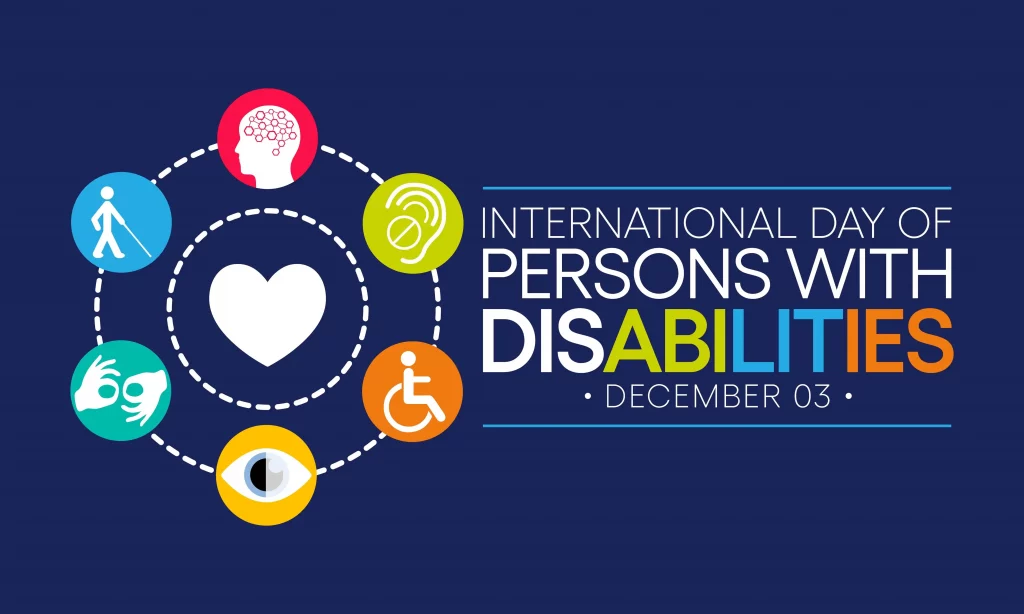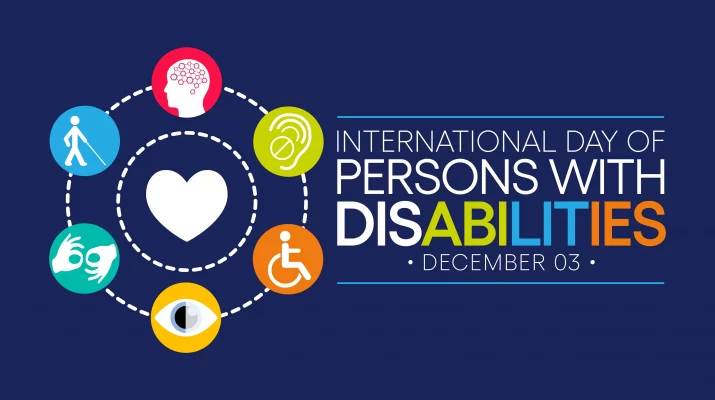Since 1992, the United Nations General Assembly has observed the International Day of Persons with Disabilities on December 3. The annual observance aims to promote an understanding of disability issues and mobilize support for the dignity, rights, and well-being of persons with disabilities. It also seeks to increase awareness of gains to be derived from the integration of persons with disabilities in every aspect of political, social, economic and cultural life.

Exclusion affects the 15 percent of the world’s population estimated to live with some form of disability. Persons with disabilities experience greater unmet needs around health and rehabilitation, are more likely to be denied care, and have poorer health outcomes than persons without disabilities. Women, older people, and poor people are disproportionately affected by disability, and women with disabilities face a double burden—experiencing exclusion on account of their gender as well.[i] Some of the barriers to accessing health services and participating in health decision-making are physical, such as inaccessible buildings and transport; some are institutional, such as inadequate policies and information; others are attitudinal, such as stigma.[ii] As recognized at the 2013 and 2014 World Health Assemblies, improved health for persons with disabilities serves as a catalyst to participation and positive outcomes in wider-reaching areas such as education, employment, and family, community, and public life.[iii]
The Leadership, Management & Governance Project (LMG) is working to engage marginalized groups in stakeholder meetings, strategic partnerships, and program planning and budgeting. This is an important approach to address the principle of participation and inclusion, and provides a seat at the table to groups that have historically had limited voice. LMG’s work to roll out the World Health Organization’s Wheelchair Service Training Package (WSTP) involves holding stakeholder meetings to work with local government, NGOs, Disabled People’s Organizations, and others, and includes people with disabilities (PWDs) and non-PWDs together in trainings on how to provide services to wheelchair users. Restoring mobility with appropriately fitted devices is incredibly important to opening the door to full inclusion in society, as two WSTP master trainers who work with LMG can attest:
“As a Physical Therapist, it is a heart-warming moment when I see how providing an appropriate assistive device like a wheelchair instantly transforms an individual who had been deprived of personal mobility. I see how it gives someone with a mobility disability a new outlook in life, a hopeful perspective of possibilities. The next time we meet, they ask questions about possibilities for livelihood activities or employment or education or leisure or complain of inaccessible environment. It is a confirmation that an appropriate wheelchair plays a role in promoting inclusion of persons with disability in the society. “
-Cheryl Ann Xavier, LMG consultant/WSTP master trainer
“An appropriate wheelchair can really change someone’s life around and it can easily improve self-esteem and increase level of confidence to participate fully in society. With a wheelchair that is well-fitting, one can easily have an opportunity to go back to school, have decent job and be a very important member of the family. Being in a wheelchair 14yrs now, I have experienced my life change from the moment I received an appropriate wheelchair. My level self-esteem was low, had no confidence to socialize even to have normal life, and all these was because of bad fitted wheelchair. But of now I’m living my life fully, happy and with confident. I’m having freedom to my life. Looking back in life is one’s choice, but moving forward is a must to every wheelchair user. It’s only possible when you have good and appropriate wheelchair.”
-Abdullah Munish, LMG consultant/WSTP master trainer
[i] World Health Organization and World Bank (2011) World Report on Disability
[ii] MacLachlan M & Swartz L (2009) Disability and International Development: Towards Inclusive Global Health

